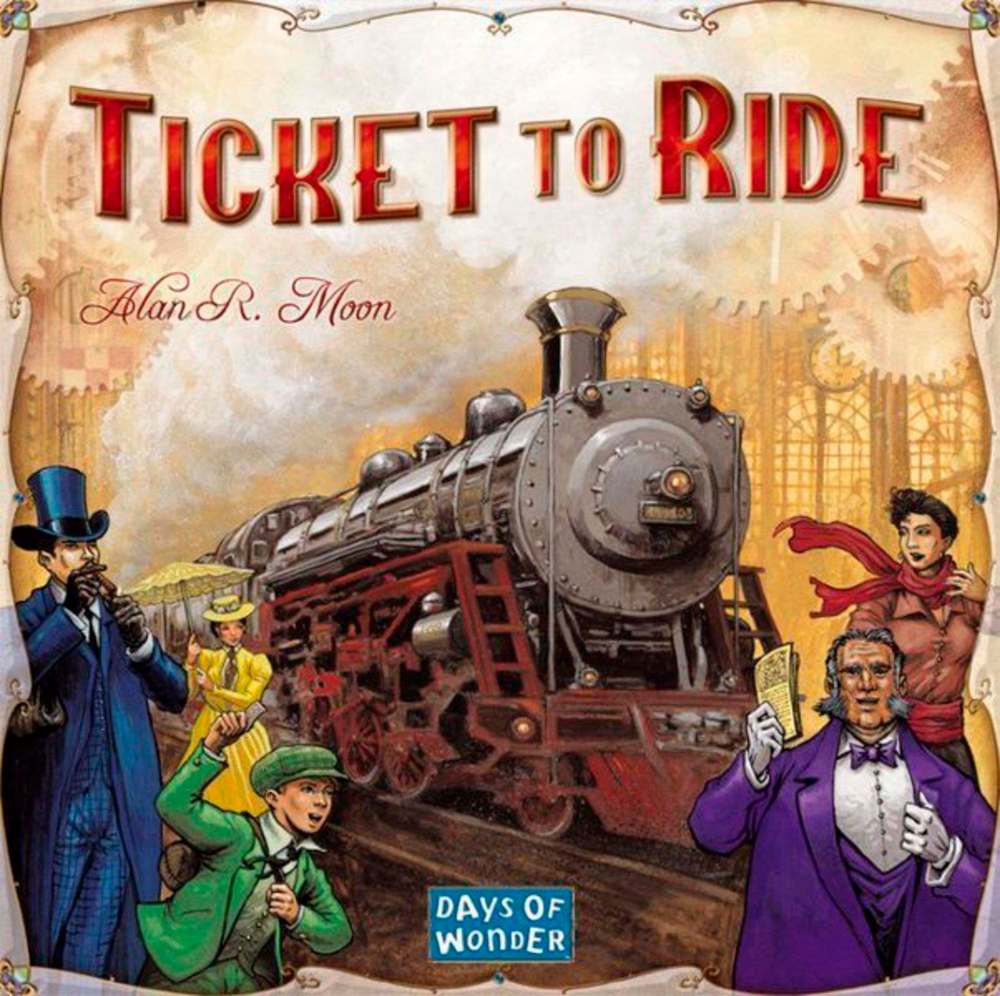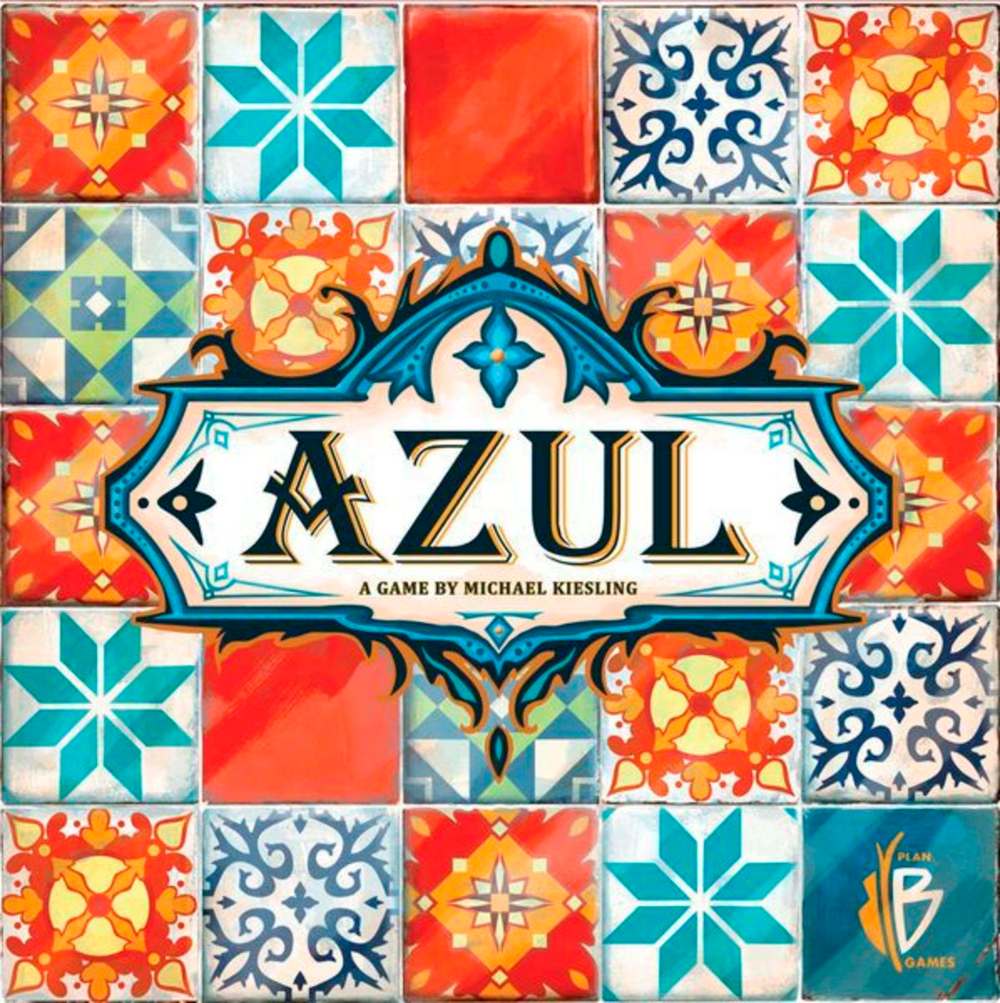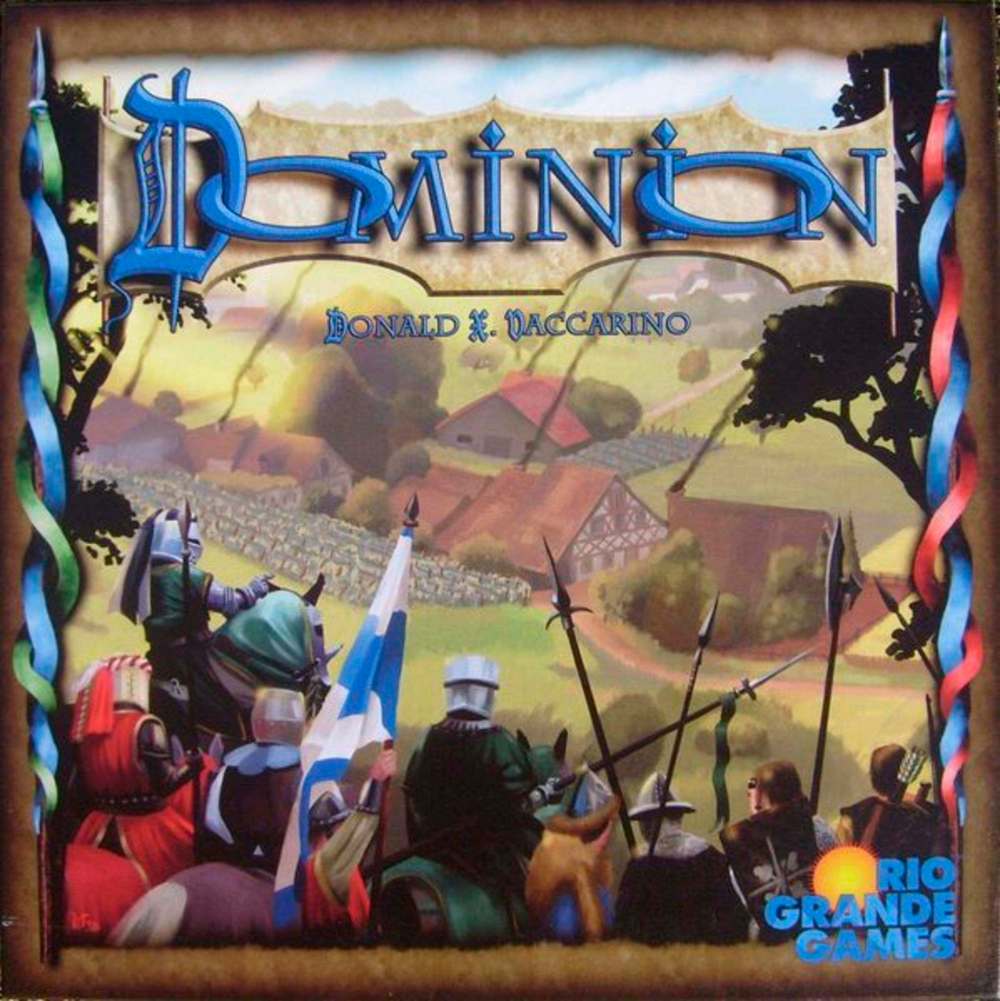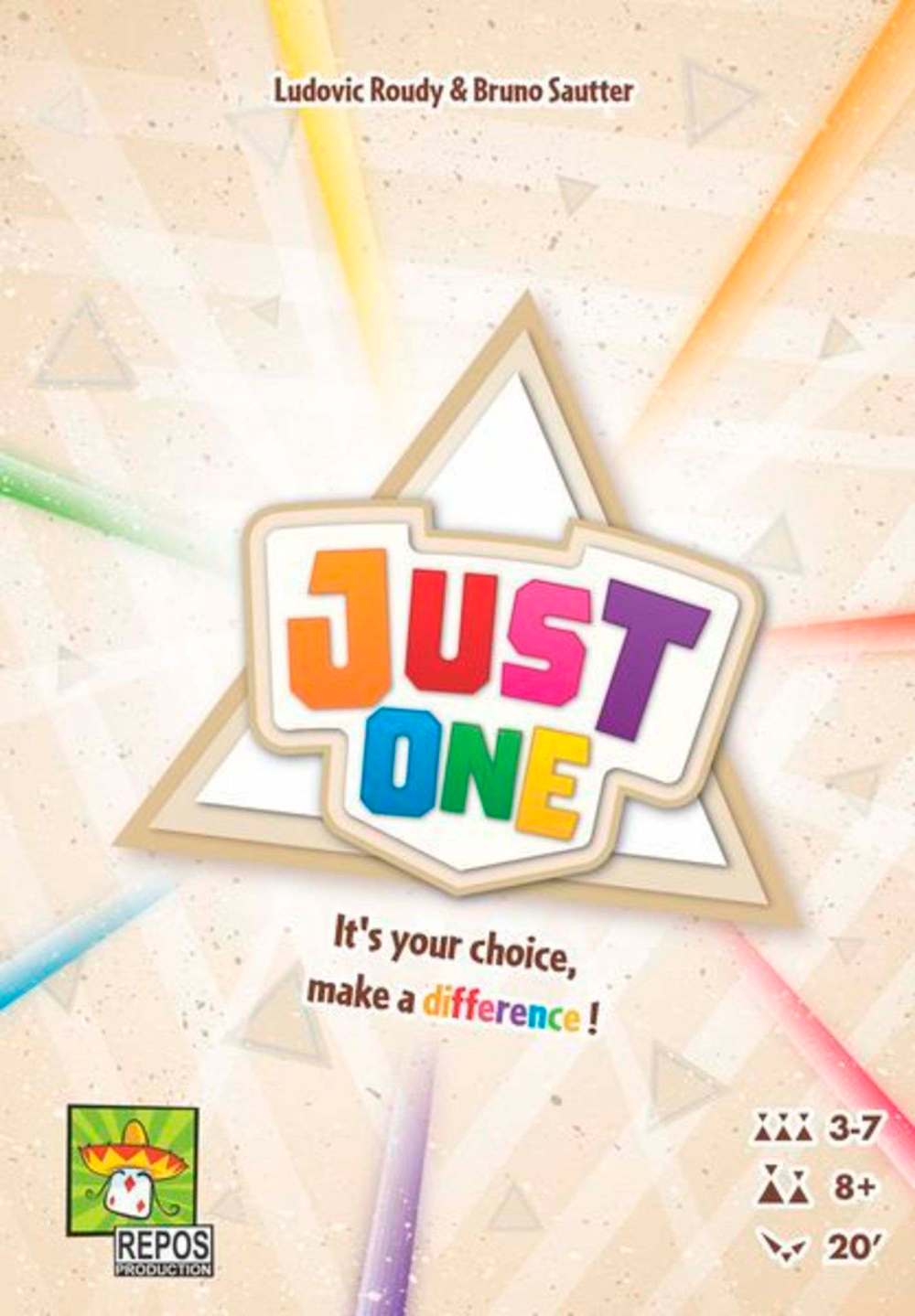Looking for a new game? Trust the judges
Annual awards helped spread the popularity of classics such as Catan and Dominion
Advertisement
Read this article for free:
or
Already have an account? Log in here »
To continue reading, please subscribe:
Monthly Digital Subscription
$0 for the first 4 weeks*
- Enjoy unlimited reading on winnipegfreepress.com
- Read the E-Edition, our digital replica newspaper
- Access News Break, our award-winning app
- Play interactive puzzles
*No charge for 4 weeks then price increases to the regular rate of $19.00 plus GST every four weeks. Offer available to new and qualified returning subscribers only. Cancel any time.
Monthly Digital Subscription
$4.75/week*
- Enjoy unlimited reading on winnipegfreepress.com
- Read the E-Edition, our digital replica newspaper
- Access News Break, our award-winning app
- Play interactive puzzles
*Billed as $19 plus GST every four weeks. Cancel any time.
To continue reading, please subscribe:
Add Free Press access to your Brandon Sun subscription for only an additional
$1 for the first 4 weeks*
*Your next subscription payment will increase by $1.00 and you will be charged $16.99 plus GST for four weeks. After four weeks, your payment will increase to $23.99 plus GST every four weeks.
Read unlimited articles for free today:
or
Already have an account? Log in here »
Hey there, time traveller!
This article was published 17/08/2019 (2298 days ago), so information in it may no longer be current.
Why do we like award shows so much? Whether it’s the Oscars, Grammys or Junos, most of us are eager to take in the spectacle of couture and celebrity surrounding these ceremonies.
Personally, I’m less interested in the fashion and glamour of the red carpet and more interested in the award winners themselves. I enjoy award shows because they help me cut through the endless list of new movies and songs released every year. I trust that a group of event judges were able to determine which releases were of exceptional quality. I assume any movie that won an Oscar will merit my attention and every artist who won a Juno will be worth a listen. In other words, awards help me to filter out the good from the not-so-good.
The world of board games is no different. Every year there are about 1,500 to 3,000 new board game titles released around the world. Who has the time or money to play them all? Wouldn’t it be great if there was an award that honoured each year’s outstanding game releases? Well, there is. In fact, there are a number or noteworthy game awards. However, the most prestigious and influential award when it comes to the board game industry is the German-based Spiel des Jahres, or Game of The Year, award.
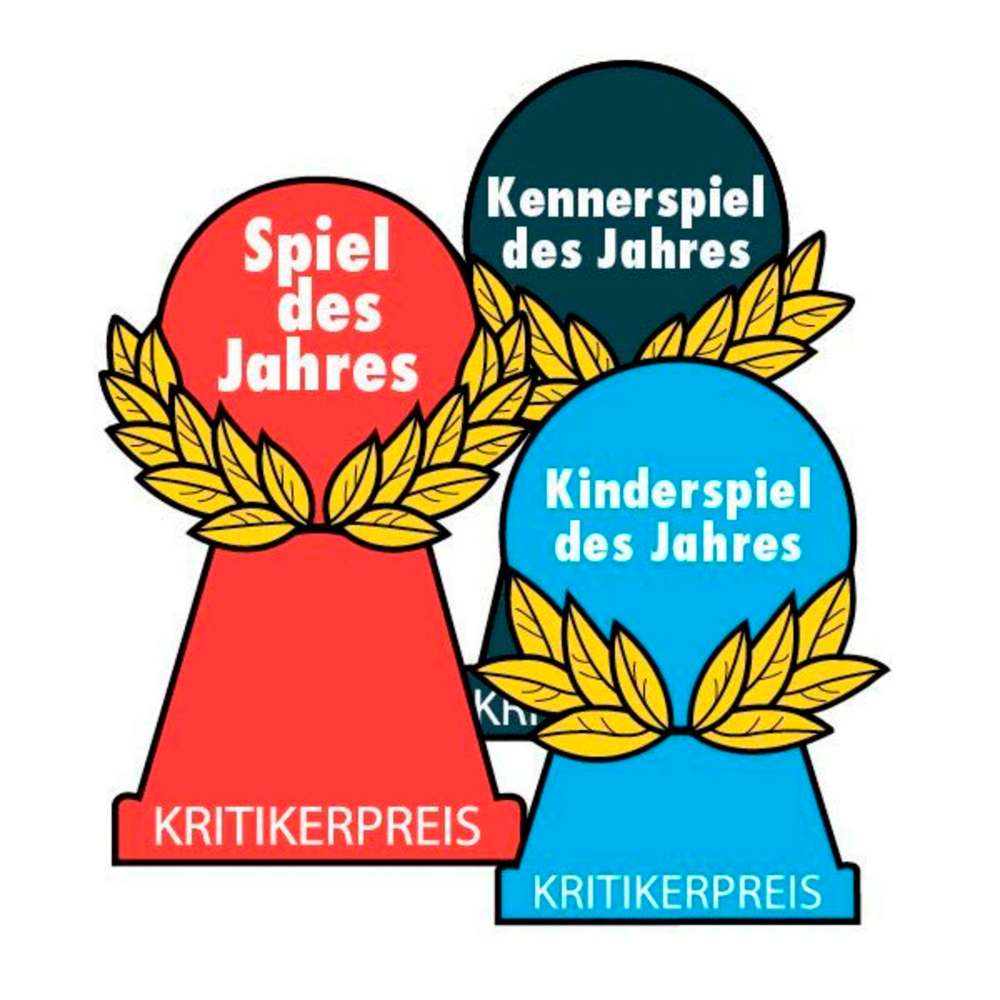
Much of the recent board gaming renaissance began in Germany and other central European countries in the late 1970s and early ’80s. There was a fresh new wave of German board game designers experimenting with innovative game mechanics who challenged the industry to turn its focus toward brand new approaches to game design.
So, it’s no surprise that an award honouring outstanding games would come out of Germany itself. The Spiel des Jahres award (pronounced SHPEEL dess YAH-res) was created in 1978 with the stated purpose of rewarding excellence in game design and promoting top-quality games in the German market. Today, this award is so trusted that a game that might normally expect to sell between 500-3000 copies could see that number jump to 300,000-500,000 copies after a Spiel des Jahres nomination or win. That’s a big boost.
The games considered for this award are family-style games. This comes from a deep-rooted German tradition of playing games as a family around the dinner table or on weekend getaways. The Spiel des Jahres logo is a red playing token with a yellow wreath around its head. On average, three or four titles will make the nominations in May and the winner is usually announced at the end of July.
The very first title to receive this industry stamp of approval was Hare and Tortoise in 1979. Though the game is still in print, it has not really achieved significant international success. However, some of the games that followed, such as Enchanted Forest (1982) and Scotland Yard (1983), would eventually be considered modern classics, though their initial success was confined to the European market.
The game that really broke out and paved the way into the international market was Settlers of Catan (now simply called Catan), which won the award in 1995. Catan quickly became a worldwide phenomenon and put both euro-style games, and the award itself, on the map. Other winning games, now considered classics, quickly followed: Carcassonne (2001), Alhambra (2003), Ticket to Ride (2005), Dominion (2009), Dixit (2010), Hanabi (2013), Codenames (2016) and Azul (2018) are just a few of the titles that enjoyed tremendous success, partly for being recognized as the most outstanding game of their given year.
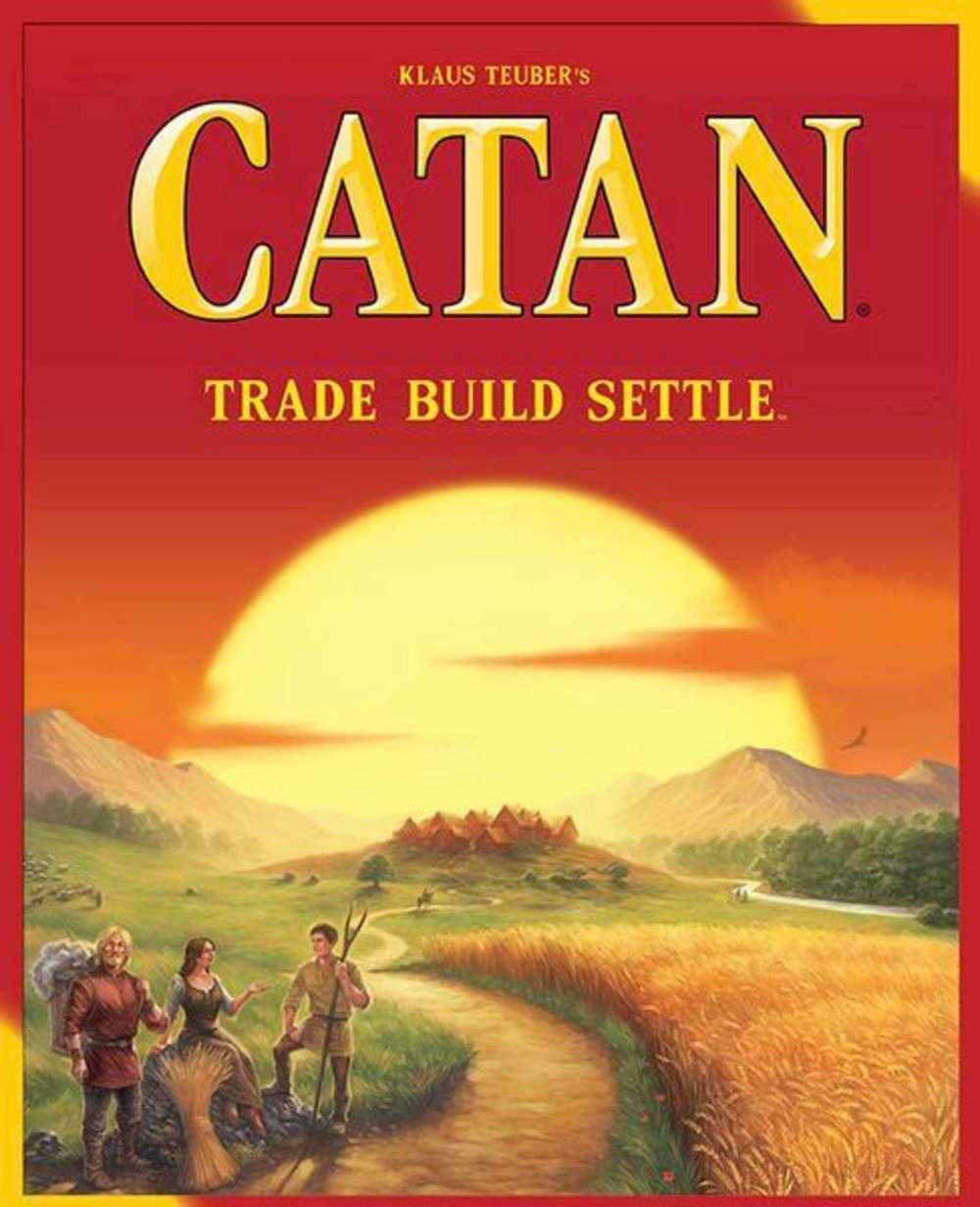
As mentioned earlier, the Spiel des Jahres only considers family-style games. The Kinderspiel des Jahres (Children’s Game of the Year) was added in 1989 to reward excellence in that sub-market. Loopin’ Louie (1994), The Magic Labyrinth (2009) and Spinderella (2015) are just some of the charming games that won the children’s award.
Eventually, the gaming community’s appetite for more complex and strategic games, which also fell outside the purview of the original Spiel des Jahres award, demanded the creation of another category. For that reason, the Kennerspiel des Jahres (Connoisseur/Enthusiast Game of The Year) was formally introduced in 2011. It honoured more advanced game mechanics which, even though they still were exceptional, might be considered too involved for a family-style evening; 7 Wonders (2011), Istanbul (2014) and Exit (2017) are some of the noteworthy honourees.
This year’s Spiel des Jahres winner is Just One, another wonderfully innovative design that I am certain will become a board game staple for many years to come. The Kinderspiel des Jahres went to Tal der Wikinger and the Kennerspiel went to Wingspan.
No matter what your preferred style of board game might be, I am convinced that any Spiel des Jahres winner will provide you with a game worthy of your attention. It might not become your favourite, but it will seldom disappoint. So, the next time you see the bright red Spiel des Jahres logo on a board game box, you know that something special may be waiting for you inside. Why not give it a try?
Olaf Pyttlik is a Winnipeg board game enthusiast and co-owner of Across the Board Game Cafe. In a regular column, Pyttlik looks at the renaissance of board games and shares games ideas for families and friends of all ages. Email him at olaf@acrosstheboardcafe.com.


